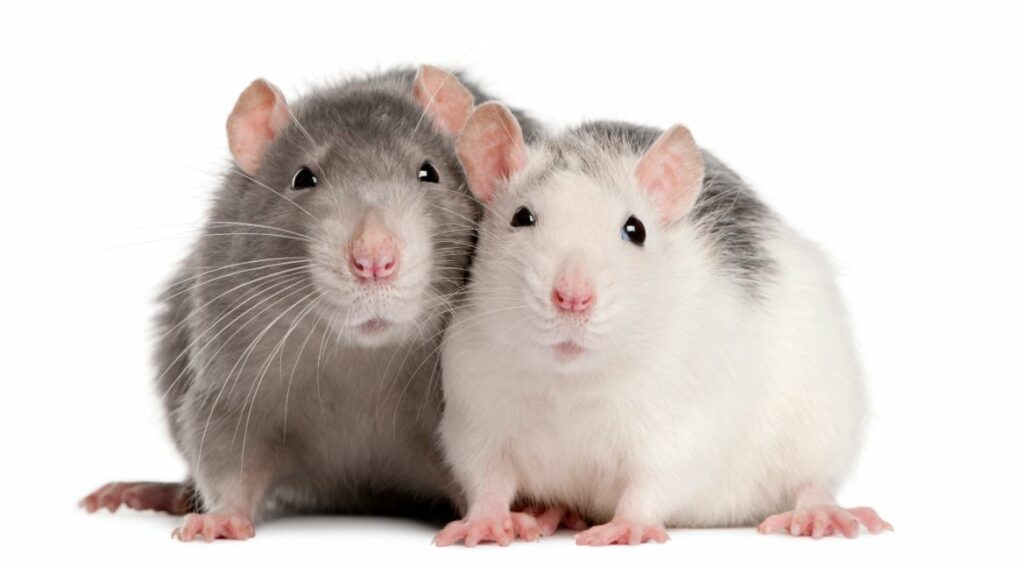Rats are fascinating creatures that make excellent pets. They are intelligent and social animals that can be trained to do tricks and even come when called.
They’re often very affectionate and lovely, however, sometimes rats can exhibit aggressive behavior, which can be concerning for their owners.
In this blog post, we will explore the causes of aggression in rats, as well as provide tips for preventing and handling aggression.

Introduction
Before we dive into the causes of aggression in rats, it is important to understand rat behavior. Rats are social animals that thrive in groups.
They are also intelligent and curious creatures that require mental and physical stimulation. In the wild, rats have a complex social structure and communicate with each other through body language, vocalizations, and scent marking.
Aggression in rats can be defined as any behavior that is intended to harm another rat or human. This behavior can manifest as biting, scratching, or even lunging. Aggressive behavior in rats can be a result of various causes, including genetics, trauma or illness, poor socialization, territoriality, hormonal imbalances, and environmental factors.
Causes of Aggression in Rats
- Genetics: Some rats may have a genetic predisposition to aggression. This can be due to a lack of socialization with other rats, which can lead to aggressive behavior.
- Trauma or illness: Rats that have experienced trauma or are suffering from illness may exhibit aggressive behavior. This can be due to pain or discomfort, which can cause rats to lash out.
- Poor socialization: Rats that have not been properly socialized with other rats may become aggressive towards other rats or humans.
- Territoriality: Rats are territorial animals and may become aggressive when they feel their territory is being threatened.
- Hormonal imbalances: Hormonal imbalances, such as those caused by pregnancy or puberty, can cause rats to exhibit aggressive behavior.
- Environmental factors: Rats that are kept in a stressful or uncomfortable environment may become aggressive. This can be due to a lack of mental and physical stimulation, as well as poor living conditions.
Signs of Aggression in Rats
It is important for rat owners to be able to recognize the signs of aggression in their pets. Some common signs of aggression in rats include:
- Body language cues: When rats are feeling aggressive, they may puff up their fur, arch their backs, and show their teeth.
- Vocalizations: Rats may make loud squeaking or hissing sounds when they are feeling aggressive.
- Approach and attack behaviors: Rats may lunge, bite, or scratch when they are feeling aggressive. They may also charge towards another rat or human in an attempt to attack.
Preventing Aggression in Rats
As with any pet, it is important to take steps to prevent aggression in rats. Some tips for preventing aggression in rats include:
- Proper socialization: Rats that are properly socialized with other rats and humans are less likely to exhibit aggressive behavior.
- Training and behavior modification: Rats can be trained to exhibit positive behaviors and encouraged to engage in appropriate activities to reduce aggressive behavior.
- Providing a stimulating environment: Rats require mental and physical stimulation, so providing them with toys, hiding places, and other enrichment activities can help reduce aggressive behavior.
- Regular veterinary care: Regular visits to the veterinarian can help identify any underlying health issues that may be causing aggressive behavior in rats.
Handling Aggression in Rats
If your rat is exhibiting aggressive behavior, it is important to handle the situation carefully. Some tips for handling aggression in rats include:
- Defensive techniques: If a rat is attacking, it is important to protect yourself. This can be done by using a thick towel or gloves to handle the rat.
- Medical interventions: If your rat is exhibiting aggressive behavior due to an underlying health issue, your veterinarian may recommend medical interventions to help manage the behavior.
- Seeking professional help: In some cases, seeking the help of a professional animal behaviorist may be necessary to address aggressive behavior in rats.
Conclusion
In conclusion, aggressive behavior in rats can be a result of various factors, including genetics, trauma or illness, poor socialization, territoriality, hormonal imbalances, and environmental factors.
Recognizing the signs of aggression in rats and taking steps to prevent and handle aggressive behavior is important for the safety and well-being of both the rat and their owner. Remember, if you are ever concerned about your rat’s behavior, seeking the help of a professional is always a good idea.
- How Long Do American Eskimo Dogs Live? Important Factors and Care Tips - September 29, 2023
- Do American Bulldogs Need Grooming? Essential Tips and Care Guidelines - September 29, 2023
- Do Bengal Cats Enjoy Playing? Essential Tips for Keeping Them Active - September 29, 2023